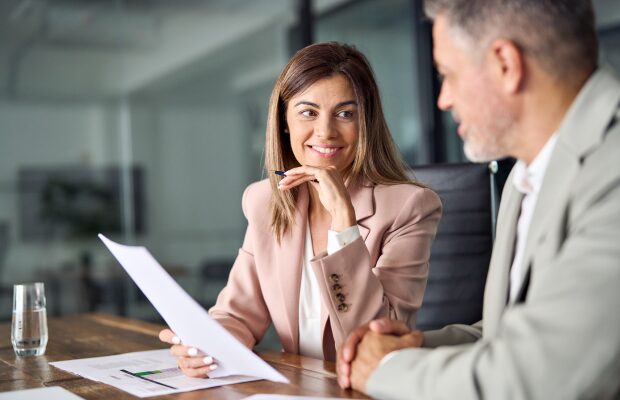Whether you’re a new landlord or you’ve been renting out properties for some time, the rules around Energy Performance Certificates (EPCs) can be complex.
They’re changing, too, so staying on top of the regulations can be tricky.
In this guide, we explain everything you need to know about EPCs, including:
- What an EPC is
- When you’ll need one
- How to get one
- What the inspection involves
- How to understand the certificate
- The rules on rental properties
- How those rules are changing very soon
- The fines for non-compliance
What is an EPC?
EPC stands for Energy Performance Certificate.
Your EPC shows how energy efficient your property is, on a sliding scale of A-G, and outlines what the energy bills in that property might cost.
EPCs also contain valuable information on steps you can take to improve your property’s energy efficiency.
Who is responsible for obtaining an EPC?
Homeowners selling their property or landlords letting a property out are responsible for ensuring it has a valid Energy Performance Certificate (EPC).
How long does an EPC last?
An Energy Performance Certificate (EPC) is valid for 10 years.
Although you only need a valid EPC if you’re selling or renting out a property, having an inspection every 10 years means you’ll always have a valid EPC to call upon.
It also means you’ll always have an up-to-date idea of how energy efficient your property is.
When do landlords need an EPC?
Before you rent your property out
You can’t legally let a property without a valid Energy Performance Certificate (EPC).
So, if you’re planning to rent out a property for the first time, you’ll need to ensure it has a valid EPC before you list it.
If your property is already rented out, you’ll only need a valid EPC if you market it to new tenants.
Before you sell your rental property
Any property being sold, including a previously rented property, requires a valid Energy Performance Certificate (EPC) before it’s put on the market.
When is an EPC not required?
A new EPC is not required if:
- Your property is already being rented by tenants and the EPC expires during their tenancy. You would only require a new certificate when you come to market the property to new tenants
- Your property has previously been rented by tenants, but they’re moving out and you are moving in
- You’re already living in the property and aren’t planning to sell it
- The property is exempt from having an EPC
What makes a house EPC exempt?
- Certain properties are exempt from requiring a valid Energy Performance Certificate (EPC), including:
- Listed buildings where energy efficiency improvements are restricted
- Temporary buildings with a maximum lifespan of two years
- Certain industrial buildings and workshops
- Detached buildings with a floor space of less than 51 metres
- Buildings that have been earmarked for demolition
Do I need an EPC for an existing tenancy?
If your Energy Performance Certificate (EPC) runs out during a tenancy, you’re not legally obligated to renew it until such time as the property is marketed to new tenants.
However, keeping on top of your investment property’s energy performance is good practice and renewing your EPC every 10 years (or sooner) can help you to make improvements where needed.
Who issues EPCs?
Your Energy Performance Certificate (EPC) must be issued by an accredited domestic energy assessor.
The assessment can either be booked by you, through the government’s official EPC Register, or your estate or letting agent if you’re selling or renting your property out.
How to get an EPC
To get an EPC, the best place to start is online.
The EPC Register website has a list of energy assessors and you can search by postcode to find the nearest to you.
How much is an EPC?
The cost of an EPC varies depending on the size of your property, but generally you can get one for around £70.
An EPC assessment is the same process regardless of the person providing the assessment, so don’t be duped into paying more than you need to and shop around for the cheapest deal.
What does an EPC inspection involve and how long does it take?
Your EPC assessor will need access to all the rooms in your property, including the loft and any extensions.
During the assessment, they’ll look at:
- The age of your property
- The materials used to build it
- The thickness of the walls
- Wall and loft insulation
- Heating systems and controls
- The hot water cylinder and any insulation
- Any other heating systems
- The windows frames and glass
- The construction of the floor
- All lighting
Once you’ve booked an energy assessor to come to your property and issue an EPC, the assessment itself will only take between 45 minutes and an hour in most cases.
What do EPC ratings mean?
Energy Performance Certificates (EPCs) show your property’s energy efficiency on a sliding scale from A to G.
‘A’ is the most efficient and ‘G’ is the least efficient.
Each A-G rating is banded across the government’s Standard Assessment Procedure (SAP) points system, so you’ll also see numbers alongside the A-G ratings.
Different colours are also used to show how energy efficient each SAP band is, with green being the most energy efficient and red being the least:

| EPC Rating | SAP points band | Colour |
| A | 92-100 | Green |
| B | 81-91 | Green |
| C | 69-80 | Green |
| D | 55-68 | Yellow |
| E | 39-54 | Amber |
| F | 21-38 | Orange |
| G | 1-20 | Red |
The certificate shows the property’s current rating from A to G, alongside its SAP rating between 1 and 100.
It also shows projected ratings that could be achieved through a series of recommendations, which are outlined on page three of the EPC.
The document also shows the estimated costs of running the property, including projected lighting, heating, and hot water expenses.
Finally, an EPC breaks down the energy efficiency of a property according to different elements, such as windows, walls, the floor, roof and the heating and water system, providing a star rating for each element.
What is the minimum EPC rating landlords need?
The Minimum Energy Efficiency Standard (MEES) came into force in 2018, requiring privately rented property in England Wales to have a minimum Energy Performance Certificate (EPC) rating of ‘E’.
Any property with an EPC rating below ‘E’ can’t be legally let out.
From 2025, however, the MEES will rise to ‘C’ for new tenancies, followed by all tenancies from 2028
Can I be fined for not having an EPC?
If you fail to provide a valid Energy Performance Certificate (EPC) when selling or renting your property to new tenants, you could be fined £200.
A valid EPC must also be displayed on any advertisements where the property is listed for sale or for rent, with fines of up to £200 for non-compliance.
For landlords, fines of up to £5,000 are in place for those renting out properties below the Minimum Energy Efficiency Standard (MEES) of ‘E’.
From 2025, when the MEES rises to ‘C’, fines for non-compliance will also rise to as much as £30,000.
How can you improve your EPC rating?
There’s plenty you can do to improve your property’s energy performance.
With the Minimum Energy Efficiency Standard (MEES) for privately rented properties set to rise from ‘E’ to ‘C’ in 2025, taking immediate steps to ensure your property hits that mark is essential.
Try some of the following steps to boost your property’s EPC rating:
- Replacing thermostats
- Adding wall insulation
- Adding cavity wall insulation
- Replacing windows
- Adding underfloor heating
- Using high performance doors
- Adding loft insulation
- Draught proofing
- Insulating pipes
Further reading…
- All the documentation you’ll need to sell your house
- Your essential guide to being a landlord
- Everything you need to know before you buy a listed building
If your looking for a hassle-free landlord experience, contact your local branch today.







